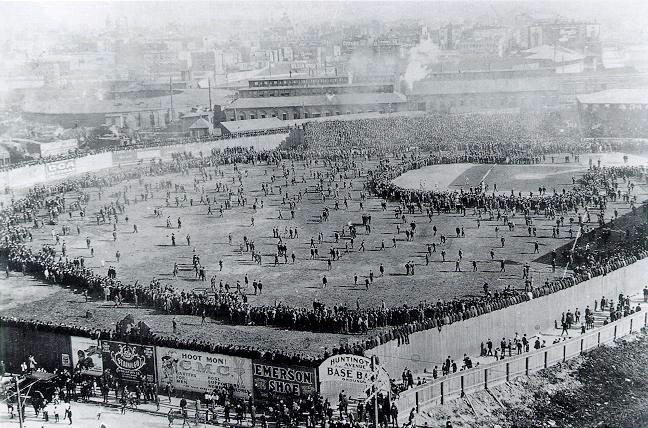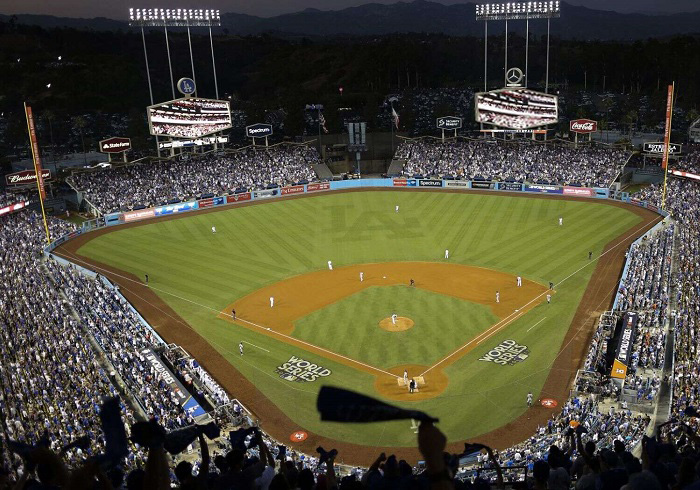From 1903 through 1968, Major League Baseball concluded each season* with a ‘World Series’ – the best team (based on win-loss record) from the National League playing the best team from the American League in a best-of-seven series (four seasons were best-of-nine). The concept was simple, yet classic – the long, regular season determined which teams played for the World Championship. The best played the best.

In 1961, MLB implemented its expansion strategy – adding two AL teams (the LA Angels and Washington Senators) – and another two teams in 1962 (Houston Colt 45’s and NY Mets) to the NL. By the 1969 season, MLB had expanded to 24 teams – two, six-team divisions (East and West) in each League. With an unbalanced geographic-based schedule, MLB changed the playoff format. Division winners from each league would play each other for their respective League pennant, with the winner moving on to the World Series.
In 1994 the playoff format was changed again when MLB realigned the National and American Leagues into three divisions. A ‘Wild Card’ team was added to the playoff format, presumptively to have an even number of teams in the playoff structure. For the first time in MLB history, it became possible for a team without the best record in its league to win the World Series** – a fine kettle of fish – which did not take long for the possible to become reality:
- 1997 – The Wild Card Florida Marlins finished nine games behind the NL East Division winner Atlanta Braves but won the World Series.
- 2002 – The AL Anaheim Angels finished the regular season 4-games behind the Oakland Athletics, but as a Wild Card won the World Series.
- 2003 – The Florida Marlins once again went from Wild Card to World Champions, although they finished 10 games behind the Atlanta Braves in their division.
- 2004 – Although finishing three games behind the NY Yankees, the AL Wild Card Boston Red Sox won the World Series.
- 2011 – The NL St. Louis Cardinals not only finished six games behind the Milwaukee Brewers, but the Philadelphia Phillies and Arizona Diamondbacks also had better regular-season records; nonetheless, the Cards won the World Series.
- 2014 – The NL SF Giants finished six games behind the LA Dodgers and were tied for only the fourth-best record in the National League, but became World Champions.
For no apparent reason, other than the obvious (money), MLB and the MLB Players Association agreed in the 2011 Collective Bargaining Agreement to add a second Wild Card team to each League’s playoff format. Beginning in 2012, each League added a one-game playoff between the Wild Card teams to determine which team would advance to the Division Series playoff.
Essentially, the World Series has evolved from the best playing the best to a postseason tournament, with the potential of an also-ran being crowned the World Champions of baseball.
Even worse. On two occasions already, two Wild Card teams made it through the playoffs and into the World Series – 2002 (Angels and Giants) and 2014 (Giants and Royals). Sacrilege to MLB purists (who some may call dinosaurs).

(Photo credit – Tim Donnelly)
With six weeks remaining in the 2019 regular season, there are five NL teams (Brewers, Diamondbacks, Giants, Mets, and Phillies) within striking distance of a postseason Wild Card spot, even though their win-loss records are hovering around .500. The possibility of any team going to the World Series with a regular-season winning percentage just above .500 should be an embarrassment to MLB.
Changes are needed to the MLB postseason format … but that’s another topic for another day; say, like … during the next ‘Hot Stove League.’
* * *
* There was no World Series in 1904 when the New York Giants refused to play the Boston Americans (now the Red Sox).
** The MLB player strike in 1994 forced cancelation of the postseason.
* * * * *




 August 20th, 2019 at 8:00 am
August 20th, 2019 at 8:00 am  by 0799291000348
by 0799291000348  Posted in
Posted in 

I was always against it whenever a change was made, but I have to say that I like the present format.
that is what makes this site fun, Dodgers fans with differing opinions.
I would like to see expansion to enable 16 teams in each league and 4 divisional winners making the playoffs, no wild cards.
This makes the reg season again very important.
I never did like the Wild Card. Even worse is the “y’all come” postseason used by the NBA and NHL.
Steve’s idea is good but I read something somewhere (maybe here) about a complete re-alignment along with two expansion teams. No leagues, four divisions of eight teams, unbalanced schedule such as we have now. Two tier playoff.
Added benefit for me: Colorado wasn’t in the same division as the Dodgers. As it is now I get 19 Dodgers games blacked out regionally (I live in Colorado). With the plan they aren’t in the same division (Portland is one of the expansion teams). I think the played each other only six times per season.
This also included a small reduction in games played each season.
On a complete side note, a very very dear friend of mine who passed several years ago was an absolute master at using ago-old quips, such as “A fine kettle of fish.”
Thank you for rekindling many (very) fond memories of him, Jesse.